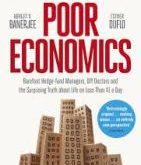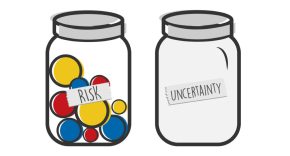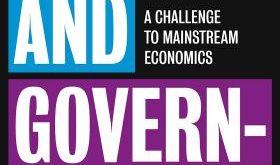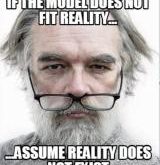Economists — a perniciously overconfident tribe We economists trudge relentlessly toward Asymptopia, where data are unlimited and estimates are consistent, where the laws of large numbers apply perfectly and where the full intricacies of the economy are completely revealed … Worst of all, when we feel pumped up with our progress, a tectonic shift can occur, like the Panic of 2008, making it seem as though our long journey has left us disappointingly close...
Read More »‘Nobel prize’ winning plumbers
‘Nobel prize’ winning plumbers There is no reason to believe, as the political economy view would have it, that politics always trumps policies. We can now go one step further and invert the hierarchy between policies and politics … The focus on the broad INSTITUTIONS as a necessary and sufficient condition for anything good to happen is somewhat misplaced … There is considerable slack to improve institutions and policy at the margin … These changes will...
Read More »Sind so kleine Hände
Sind so kleine Hände [embedded content] Grade, klare Menschen wär’n ein schönes Ziel. Leute ohne Rückgrat hab’n wir schon zuviel.
Read More »Sweden’s multiculturalist experiment
[embedded content] Kultur, identitet, etnicitet, genus, religiositet får aldrig accepteras som grund för intolerans i politiska och medborgerliga hänseenden. I ett modernt demokratiskt samhälle måste människor kunna räkna med att samhället också skyddar dem mot intoleransens övergrepp. Alla medborgare måste ha friheten och rätten att också ifrågasätta och lämna den egna gruppen. Mot dem som inte accepterar den toleransen måste vi vara intoleranta. I Sverige har vi länge...
Read More »Kieslowski’s masterpiece
[embedded content]
Read More »Skidelsky on the uselessness of ‘New Keynesian’ economics
Whereas the Great Depression of the 1930s produced Keynesian economics, and the stagflation of the 1970s produced Milton Friedman’s monetarism, the Great Recession has produced no similar intellectual shift. This is deeply depressing to young students of economics, who hoped for a suitably challenging response from the profession. Why has there been none? Krugman’s answer is typically ingenious: the old macroeconomics was, as the saying goes, “good enough for government work”...
Read More »The past and future of economics
The past and future of economics One sign that something historically new has indeed appeared is if scholars begin reading the past in a new light. Accordingly, one of the most significant books to come out of the UK in recent years would have to be Robert Skidelsky’s Money and Government: The Past and Future of Economics. Ostensibly an attempt to answer the question of why mainstream economics rendered itself so useless in the years immediately before and...
Read More »Why Wall Street shorts economists and their DSGE models
Why Wall Street shorts economists and their DSGE models Very few Wall Street firms find the DSGE models useful … This should come as no surprise to anyone who has looked closely at the models. Can an economy of hundreds of millions of individuals and tens of thousands of different firms be distilled into just one household and one firm, which rationally optimize their risk-adjusted discounted expected returns over an infinite future? There is no empirical...
Read More »Nur ein Wort
[embedded content]
Read More »DAGs — colliders and d-separation (wonkish)
DAGs — colliders and d-separation (wonkish) [embedded content] Great lecture on something that most students have problems with when introduced to causal graph theory.
Read More » Lars P. Syll
Lars P. Syll





